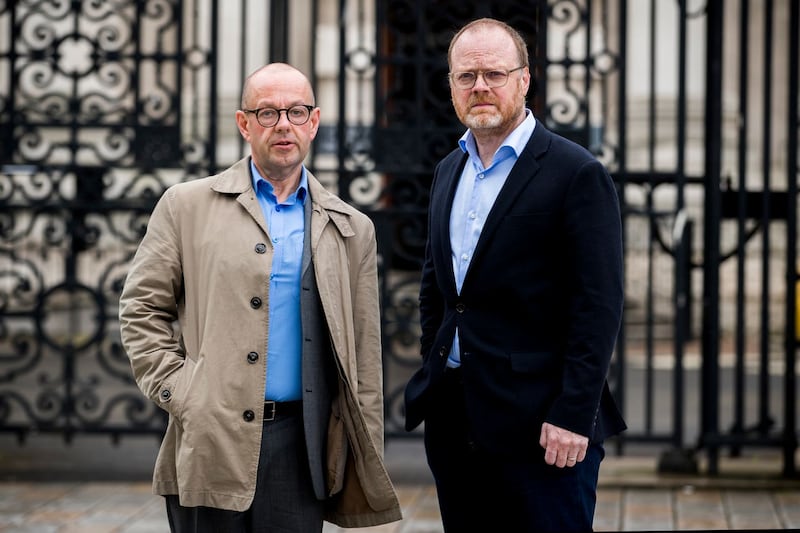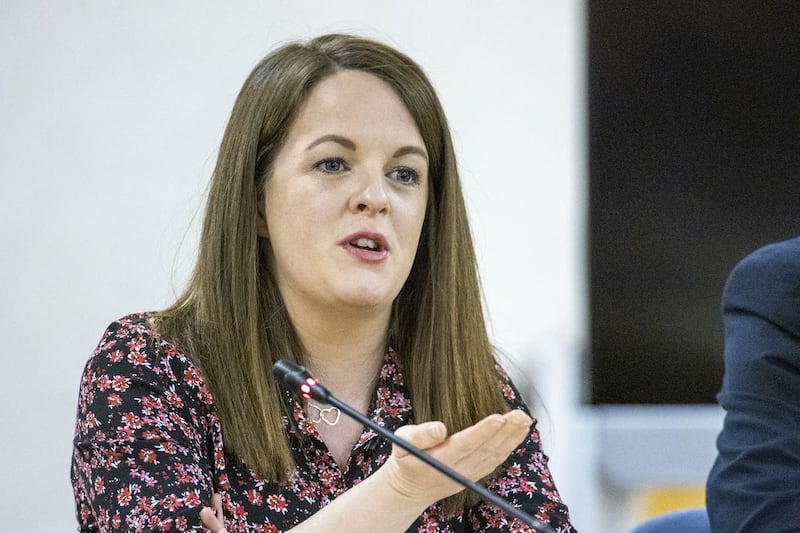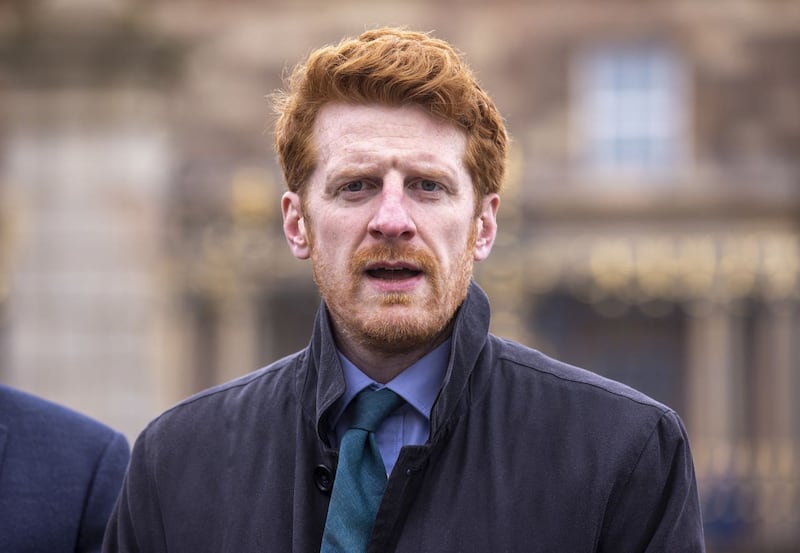Concerns have been raised about police attitudes towards journalists in Northern Ireland after it emerged a watchdog is investigating whether officers unlawfully accessed the phone records of a reporter.
The UK’s Investigatory Powers Tribunal has initiated a probe into police surveillance of journalist Barry McCaffrey’s phone data.
Mr McCaffrey had been investigating alleged police corruption around the time his data was said to have been accessed by the PSNI in 2013.
Five years later, Mr McCaffrey and film-making colleague Trevor Birney rose to public prominence after they were controversially arrested as part of a police investigation into the alleged leaking of a confidential document that appeared in a documentary the men made on a Troubles massacre.

PSNI chief constable Simon Byrne later unreservedly apologised for how the men had been treated and the PSNI agreed to pay £875,000 in damages to Mr Birney, Mr McCaffrey and the film company behind the No Stone Unturned documentary on the 1994 UVF massacre in Loughinisland, Co Down.
The 2020 settlement came after a court ruled that the warrants used by police to search the journalists’ homes and Fine Point Films had been “inappropriate”.
In 2019, Mr Birney and Mr McCaffrey lodged a complaint with the Investigatory Powers Tribunal asking it to establish whether there had been any unlawful surveillance of them.
The case initiated by the tribunal relates to a time period predating the Loughinisland documentary controversy.
An IPT hearing is expected in the coming months.
Mr McCaffrey said: “To find out that the PSNI accessed my phone data in 2013 without my permission was a shocking discovery for Trevor and myself.
“I had no idea until very recently that my phone had been compromised in this way.”

He added: “There appears to be a very worrying culture within the PSNI towards journalists in Northern Ireland, one in which we are seen as criminals to be pursued.
“All journalists working in Northern Ireland have to ask themselves if they too have been subjected to similar treatment and the impact on press freedom.
“We had hoped our days in court were behind us, but we are determined to get to the truth of the PSNI actions and to hold those responsible to account.”
The Alliance Party and the SDLP have both voice concerns about the issue.
Alliance MLA Nuala McAllister said her party had raised the matter with the PSNI’s oversight body, the NI Policing Board.
She said: “As an investigation is underway, we need to let it run its course but we have major concerns over this issue.
“We will be asking questions to PSNI leadership at the Policing Board about if or how widespread this issue was and to ensure there is extensive scrutiny of the past and current practices in relation to this matter.
“It is entirely unacceptable if the PSNI accessed these phone records without permission being granted and we await the findings of the Investigatory Powers Tribunal in their investigation.”

SDLP Stormont leader Matthew O’Toole said that the PSNI should not be interfering in the work of journalists.
He said the revelations around the 2013 phone data were “extremely concerning” and said it left the PSNI and its leadership with “serious questions to answer about the conduct of our police service and their attitude towards journalists and the media”.
“I acknowledge that police have made significant progress when it comes to journalists’ safety, but the media must be free to carry out their work without being impeded by the police service or anyone else,” he said.
“If police believe that journalists have information that may assist them then there are agreed ways of working to obtain that information, but accessing the phone records of journalists isn’t one of them and amounts to an attack on press freedoms.”
A PSNI spokesman said: “As the matter is subject to ongoing legal proceedings, it would be inappropriate to make any comment at this time.”








